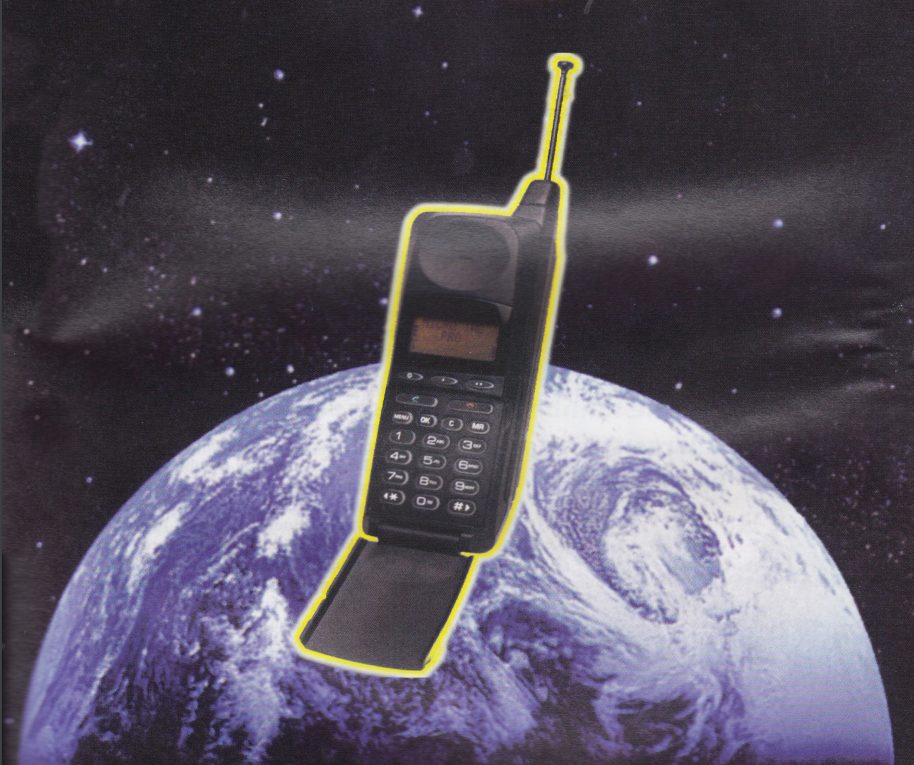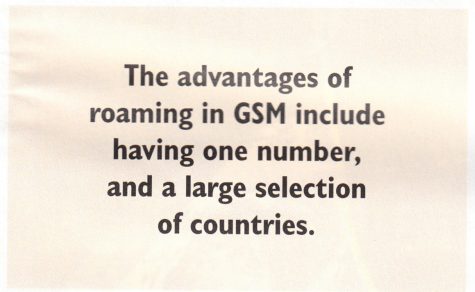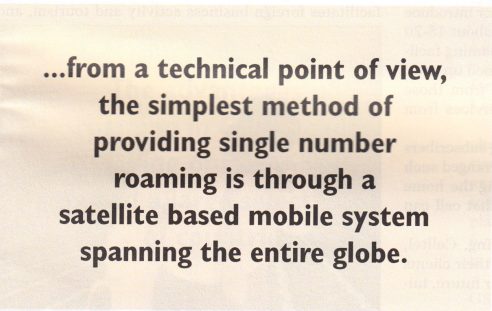
With global communication being the order of the day, many an argument has been put forward by Sri Lanka’s cellular operators as to who offers the best in ‘International roaming’. Asgar Hussein brings to light the various aspects of analog and GSM roaming.
THE ISLAND’S CELLULAR INDUSTRY IS increasingly focusing attention on international roaming the telecommunication. service which facilitates the operations of businessmen who often travel overseas. Sri Lanka became the first South Asian nation to have Automatic International Roaming (AIR) when Dialog GSM introduced it in August this year. The company has already signed up with 17 countries to obtain AIR services for clients, and plan to expand to 30 countries by the end of this year. Mobitel has been offering their version of international roaming on an analog system since commencing operations in 1993. It has signed roaming agreements with 5 countries, and negotiations are underway to sign up 2 more
Meanwhile, Celltel too is planning to offer comprehensive international roaming facilities, starting with India and Pakistan. They may later extend this service to other Asian countries. However, Call Link

(which offers roaming in only 2 countries) seems content to keep things the way they are, at least for now. Dialog is the only cellular company in Sri Lanka providing AIR on the international mobile communication standard known as GSM (Global System for Mobile Communication). Both Mobitel and Call Link offer international roaming through analog systems.
According to the CEO of Dialog, Dr Hans Wijayasuriya, GSM roaming enables a cellular user to become a ‘global citizen’ whose objective is to be contactable wherever he is.
He claimed, ‘we are the only mobile phone company offering roaming in an internationally accepted form. The Sri Lankan cellular subscriber is well educated and prudent. This is proven by the increasing numbers of our subscribers roaming in the 17 countries we have signed up with.
” A main feature of AIR is the contactability of a single number. This means that the user’s GSM number remains the same in all countries around the world with GSM coverage.
In fact, a GSM subscriber has the potential to roam in any of the GSM countries offering AIR provided his home network has established commercial agree- ments and telecommunication signaling connections with a GSM operator in that country. Currently, there are 107 countries connected to the GSM system.
The 17 countries with which Dialog has signed up to obtain AIR services for clients include the UK, Germany, France, Switzerland, Spain, Finland, Austria, Sweden, Belgium, the Netherlands, Estonia, Turkey, Singapore, Hong Kong, Indonesia, Australia and New Zealand.
Very shortly, the company intends to provide roaming in the United Arab Emirates, Denmark, Thailand and Malaysia. They also hope to sign up with the US towards the end of the year.
Dr. Wijayasuriya says that though their AIR service has been commercially available only for a few months, many leading businessmen have subscribed to it.
He claimed this service has received a “Very good response’, with over 200 Sri Lankan businessmen being frequent users of this facility. Also, at any given time over 450 foreigners use it whilst operating in Sri Lanka.
The advantages of roaming in GSM include having one number, and a large selection of countries. Further, in the case of the analog networks in Sri Lanka, it is necessary to inform the local cellular operator of travel plans to get a new number, and then to inform callers of the new number given. This is not the case with GSM roaming.
Also, since the billing is automated in GSM AIR, call records are transferred through EDI (Electronic Data Interchange) within a 24 hour period, thus minimizing fraud. However, the disadvantage in the GSM facility is that when a user travels abroad, incoming calls which are re-routed on the global number scheme to his current location will be charged as international in- coming calls to that GSM user. But of course, the user is free to bar incoming calls from the handset while overseas. Outgoing calls are charged local rates.
However, the client using AMPS (Advanced Mobile Phone System) international roaming, as offered by Mobitel, only has to pay the local rate in the destination country for both outgoing and incoming calls.
The 5 countries in which Mobitel provides roaming facilities are Australia, New Zealand, Singapore, Malaysia and Thailand. Negotiations to sign up with the US. and Indonesia are continuing. Mobitel managing director Walter McKenzie says they are considering introducing a new international roaming service with assistance from their owning company, Telstra Australia. However, this facility will be available only to Mobitel’s ‘Club Magnate’ customers.
The three main conditions for gaining ‘Club Magnate’ status are loyalty (i. e. subscribing to Mobitel services for over one year), spending over Rs 2000 per month on calls, and paying bills on time.
According to Mobitel sources, using their AMPS international roaming services is cheaper and more convenient than renting a cellular phone in the destination country. It is even cheaper than using a hotel phone on which high service costs are charged.
AMPS is the most widely used international mobile communication standard, currently available in 95 countries. Though it is available in fewer countries than GSM, it has more subscribers. The AMPS system, launched in the 1970s, is widely used in the US, South America and some Asian countries, whereas the GSM system is dominant in Europe, South East Asia, China, India and Australia. In the US, the digital version of AMPS (known as D- AMPS) is used.
McKenzie stated that Mobitel might later introduce D-AMPS. He said that at any given time, about 15-20 Sri Lankans utilize their international roaming facility within the five countries they have signed up with.Also, there are an average 8-10 visitors from those countries who obtain AMPS roaming services from body Mobitel at any given time.
Although AMPS international roaming subscribers cannot use the same number, it can be arranged such that callers in the home country can ring the home country number of the AMPS user and that call can be diverted to the destination country.
General manager, sales and marketing, Celltel, Andrei Torriani says they intend offering their clients international roaming facilities in the near future, initially in India and Pakistan.
According to him, Celltel will have roaming agreements with networks that offer the best service and coverage in those countries.
Celltel, whose major shareholder is Millicom International Cellular (MIC) may later offer roaming services in other Asian countries with a Millicom group presence, such as the Philippines, Vietnam and Cambodia.
The company said the communication standard they use for this facility will vary, depending on which is the best in the given destination country. MIC adopts communication standards suited to local requirements, including GSM, AMPS and ETACS (European Total Access Communication System).
Torriani agrees there is a demand for international roaming services, but also says customers feel it is more economical (in the case of many destination countries, including the US and most European states) to rent a cellular phone overseas.
Call Link offers international roaming only in Singapore and the UK, and doesn’t intend signing up with any more countries in the near future. The company’s analog TACS (Total Access Communication System) service was launched in 1992.
Managing director, Call Link, John Houston said they don’t consider international roaming as a large market, one reason being the high rates charged. He observed that analog roaming is quite costly, while the GSM facility is unaffordable to many. Houston also claimed their customers haven’t requested them to expand their roaming service.
He however believed that international roaming will be more widely used in 3-5 years in Sri Lanka, by which time international roaming services around the world will be more well developed.
Dialog’s CEO Dr. Hans Wijayasuriya, who holds a Ph.D in Digital Mobile Radio from Bristol University, UK, said that the AIR service will facilitate the operations of Sri Lankan businessmen dealing with the European Union.
According to him, this state-of-the-art technology facilitates foreign business activity and tourism, and

can boost investor confidence. He also said their operations bring forex into Sri Lanka – ‘when foreigners use their mobile phones here, they are billed by the operator in their home country who pays us in foreign exchange.”
The majority of foreigners who use Dialog’s AIR service are Europeans and Singaporeans. Further, it is in Europe and Singapore that Dialog’s service is most widely used by Sri Lankan businessmen when they operate overseas.
Dialog GSM, a fully-owned subsidiary of Telekom Malaysia, is the first digital network in the island. Explaining the origin of the GSM system, Dr Wijayasuriya said that in the early part of the 1980s, European telecommunications administrators began to consider a more pragmatic approach towards es- tablishing a global communications system. This was at the time the concept of a single Europe was begin-

ning to be considered seriously. It was felt necessary to have a mobile communication system which would allow fully automatic roaming between European nations-digital technology was chosen to overcome the inherent shortcomings of analog by providing clarity, confidentiality, security and traffic capacity. The first GSM roaming network was launched in the early 1990s in Europe, and gradually introduced to other parts of the world.
GSM is the fastest growing digital cellular system in the world, and is presently used by over 30 million subscribers in 107 countries. In fact, a new GSM subscriber is connected every 6 seconds!
In the global GSM context, a subscriber is identified by a unique number consisting of a country code (e.g+94), home GSM network code (e.g. 77) and subscriber number (e.g. 6 digit number xxxxxx).
The Sri Lanka GSM user’s global identification is hence +9477 xxxxxx.
GSM switches (exchanges) of individual operators having roaming agreements are connected via international signaling networks (e.g. International 7 network) or direct links. These links enable the automatic exchange of subscriber data between the operators, when the user roams between their networks. When a GSM subscriber switches on his phone in a foreign land, he initiates an exchange of his subscription details between the home network and the visited network. Within seconds, he is registered on the visited network and is free to use all the services on the network such as fax and data.
Dr Wijayasuriya says that from a technical point of view, the simplest method of providing single number roaming is through a satellite based mobile system spanning the entire globe. He adds, ‘Indeed, the basic technology to implement such a system has been in place for several years. Implementation however has met several obstacles – one of the main is- sues being the contention that revenue of local telecommunication networks will be ‘stolen’ by the umbrella satellite systems. Cost has also been an inhibiting factor. In the face of uncertain economic viability and regulatory dissent, investors have been slow to commit to satellite based mobiles, and start up dates have been pushed to the end of the century.”
Explaining how satellite systems will fit in the roaming scenario, he said that positioning satellite systems as being complementary to land based digital cellular networks such as GSM, is a positive and pragmatic step towards establishing global contactability. He noted that such an approach translates into lower capital costs for satellite systems, lower tariffs within terrestrial coverage and a means of protecting the phenomenal investments already made on terrestrial infrastructure.
According to Dr Wijayasuriya, Iridium (low earth orbit-66 satellites), Globalstar (low earth orbit-48 satellites), and ICO-Inmarsat (intermediate orbit-12 satellites) are some of the front runners in the race for global coverage. Commissioning dates are expected between 1999-2001. He added that expected economies of scale have driven GSM satellite dual handset prices to around US Dollars 750, with call charges ranging between 50 cents to 3.0 US Dollars.
Meanwhile, the total subscriber base of the four cellular operators in Sri Lanka is nearing 100,000.
Mobile phone companies are still calling on the government to introduce the ‘user pays regime’, bring down the duty on handsets and remove the cascading effect of BTT on call charges. They want their inter-connectivity arrangements with Sri Lanka Telecom renegotiated, and anticipate a fairer interconnectivity regime with NTT’s recent advent. G




